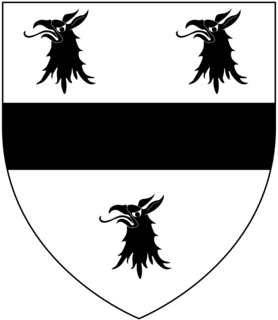The Great Western Railway Swindon Class 0-6-0 broad gauge steam locomotives for goods train work. This class was introduced into service between November 1865 and March 1866, and withdrawn between June 1887 and the end of the GWR broad gauge in May 1892. The entire class was sold to the Bristol and Exeter Railway between July 1872 and September 1874, where they were numbered 96-109, but returned to the GWR when that railway was absorbed. The locomotives were then renumbered 2077-2090; their names were not restored.
William Bridges Adams was an English author, inventor and locomotive engineer. He is best known for his patented Adams axle – a successful radial axle design in use on railways in Britain until the end of steam traction in 1968 – and the railway fishplate. His writings, including English Pleasure Carriages (1837) and Roads and Rails (1862) covered all forms of land transport. Later he became a noted writer on political reform, under the pen name Junius Redivivus ; a reference to a political letter writer of the previous century.

Long Ashton railway station was a railway station on the Bristol to Exeter line, 3.5 miles (5.6 km) southwest of Bristol Temple Meads, serving the village of Long Ashton in North Somerset, England. There were two stations on the site, the first, called "Ashton", opened in either 1841 or 1852 and closed in 1856. The second station, originally known as "Long Ashton Platform" before being renamed as "Long Ashton" in 1929, was operational from 1926 to 1941. The site is now partly under the A370 Long Ashton Bypass, and there are no visible remains of the station. There is local support for the station to be reopened, possibly sited further to the west, and possibly as part of the University of Bristol's proposed Fenswood Farm development.

John Hales was Bishop of Coventry and Lichfield (1459-1490). He was one of the Worthies of Devon of the biographer John Prince (d.1723).

Charles John Ellicott (1819–1905) was a distinguished English Christian theologian, academic and churchman. He briefly served as Dean of Exeter, then Bishop of the united see of Gloucester and Bristol.
The South West Rugby League (SWRL) also known as the South West Men's League, is a rugby league competition for teams in the South West of England. It was formerly part of the Rugby League Conference.

Walter John Trower FRSE was an Anglican bishop.
Thomas Hill Peregrine Furye Lowe was an English cleric. He was Dean of Exeter from 1839 to his death.
John Bartholomew was Archdeacon of Barnstaple from 1847 to 1865.
Ralph Barnes was the Archdeacon of Totnes from 1775 until 1820. He died in his 89th year at Harberton on Saturday 20 May 1820. His son George was later Archdeacon of Barnstaple.
Henry Law was Dean of Gloucester from 1862 until his death.
Samuel Frederick Milford was a barrister and judge, active in colonial New South Wales from 1843, a judge of Supreme Court of New South Wales.
George Albert Cooke Anglican clergyman and academic. He held two senior chairs at the University of Oxford: Oriel Professor of the Interpretation of Holy Scripture from 1908 to 1914, and Regius Professor of Hebrew from 1914 to 1936.
Henry Goldney Randall was Archdeacon of Bristol from 1873 until his death at his residence at Christian Malford.

Thomas Johnes, MA was a Welsh cleric of the Church of England, Archdeacon of Barnstaple from 1807 to 1826.
Henry Sanders (1807–1888) was a Church of England priest, most notably Archdeacon of Exeter from 1875 until his death.
Ernest Grey Sandford was an English first-class cricketer active in 1859 to 1861 who played for Oxford University in five matches. He was born in Dunchurch and died in Exmouth. He became a Church of England priest, most notably Archdeacon of Exeter from 1888 until his death.
Francis Webber was an Anglican priest and academic, an Oxford college head. He was Dean of Hereford from 1756 until his death.
Amanda Kirstine Ford is a British Anglican priest who has served as Dean of Bristol since 3 October 2020.

Edward Gibbons was an English choirmaster and composer of the late Renaissance and early Baroque periods. Born in Cambridge, Gibbons's youth is completely unknown, but he later received degrees from the Universities of Cambridge and Oxford. From 1591/92 to 1598 he worked at King's College, Cambridge, as a lay clerk and choirmaster. During his tenure he married Jane, with whom he had six children. Gibbons's whereabouts the next few years remain uncertain; he may have lived in Acton, Bristol or Exeter, but by 1607 he was the choirmaster of the Exeter Cathedral, where the choristers included Matthew Locke. By 1609 Gibbons received a special dispensation to become a priest vicar, becoming the head of the college of priest-vicars and succentor. Jane died in 1628, and Edward married Mary Bluet; the family was evicted from their home during the English Civil War, but moved to their estate in Dunsford.






